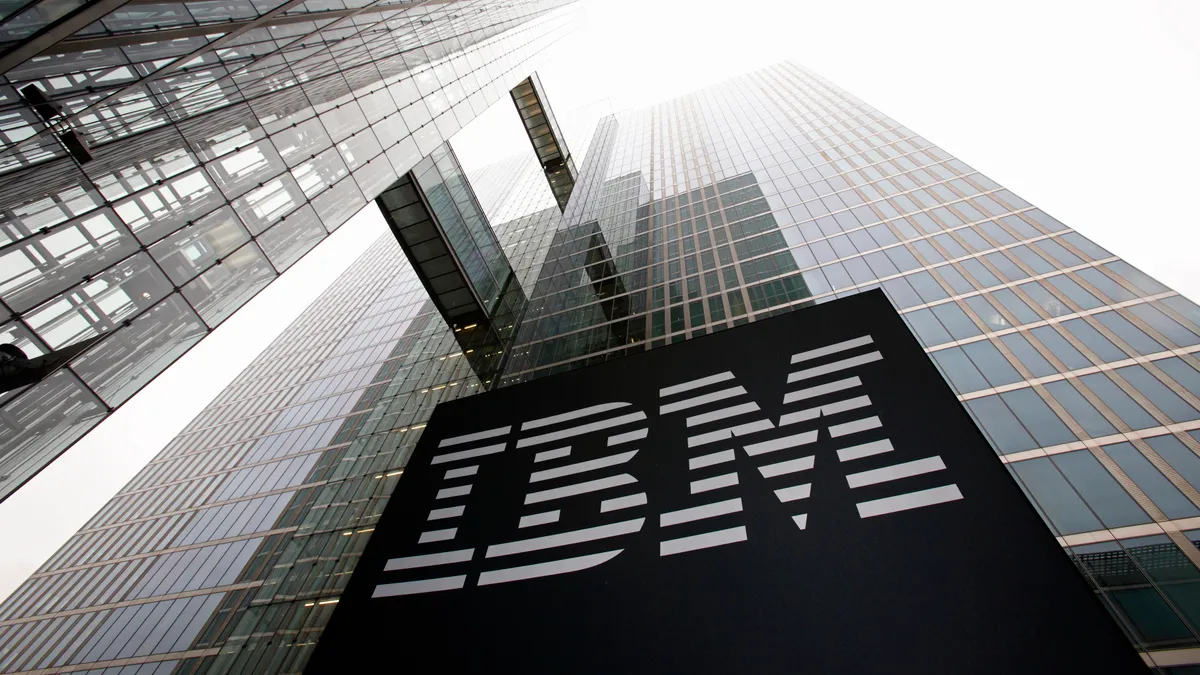Dive Brief:
-
IBM CFO James Kavanaugh credits "high-value segments" of the tech industry, including blockchain, AI and cloud, with Big Blue's first glimpse of revenue growth after 22 quarters, according to an interview with TheStreet.
-
Big Blue turned to blockchain to capitalize on the enterprise's desire to "improve trust, transparency and speed" in their supply chain, said Kavanaugh. Maersk and Walmart are among the 400 companies partnered with IBM on its blockchain platform.
-
Prior to 2014, IBM allocated two-thirds of its investments to shareholders returns. Since then, the company transitioned that amount to investments with IBM, which included 34 acquisitions, according to Kavanaugh. Blockchain, alongside AI and quantum, have helped redirect the company's "innovation pipeline."
Dive Insight:
After six years of waiting for a growth in revenue, IBM pulled it off in Q4 2017. Though its varied cloud offerings accounted for $17 billion of the $22.5 billion in revenue, strategic imperatives had a 17% year-over-year growth rate in Q4.
Prepping for the new era of digital services, IBM has worked to bolster its extensive workforce. Kavanagh said about half of IBM's workforce was brought on in the last five years. The company has since invested $2.5 billion in training.
In-house training initiatives are becoming a valuable tactic for retaining talent while providing employees with skills most pertinent to an individual company's needs. Blockchain job openings across sectors have skyrocketed from 96 in Q4 2016 to 2,200 in Q4 2017. Instead of searching for talent, IBM is cultivating its own.
Kavanaugh gives IBM's cloud services credit for companies' decision to use IBM's blockchain platform, but blockchain itself remains an elusive technology.
The solutions the technology has the potential to provide are clear, but experts agree that the platforms to do so are not yet defined or properly structured. Only one-third of the market's current blockchain proof of concepts have enough of a foundation for future development.
Additionally, enabling a full-functioning platform while maintaining its ability to defend against cyberattacks remains an issue.
Despite these reservations, the blockchain market is forecast to grow to $8.1 billion in 2021.












